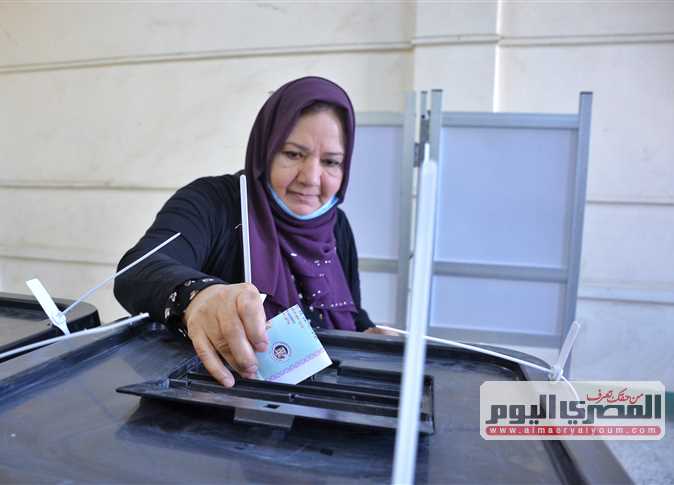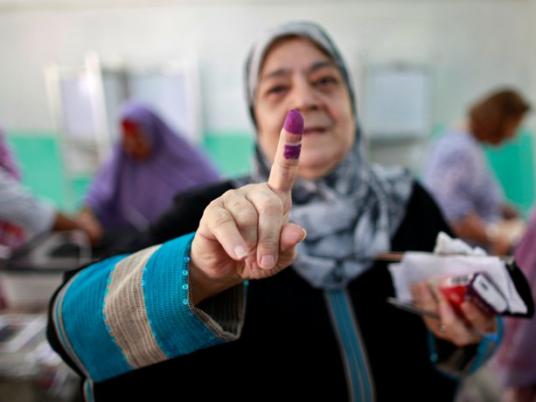After retiring from the International Atomic Energy Agency in 2009, Mohamed ElBaradei revealed a broad vision for a modern democratic Egypt: a state in which citizenship, social justice and freedom of expression are actualized, and a viable civil society is a cornerstone in the process of governance, development and performance monitoring. ElBaradei posed Mubarak’s regime as the major obstacle to achieving real social change and state reform. He further announced that he would only run for president in 2011 if constitutional amendments and political freedoms were guaranteed.
Almost a year after 25 January 2011, ElBaradei decided to withdraw from the presidential race. ElBaradei’s importance, however, goes beyond being a presidential candidate. His battle for change was foundational in inspiring young activists to mobilize and act against Mubarak’s tyranny. And despite his withdrawal from the presidential race, his fight is not over yet.
ElBaradei must re-position himself once again as a preacher for change and democracy. However, he needs to alter his rhetoric and delve more into the details of his broad mission. He should get his hands messy in Egypt’s new socioeconomic challenges.
Nonetheless, before giving recommendations on what ElBaradei should or should not do, we need to better understand the legacy and dynamics of this man’s interaction with Egyptian politics in the two crucial years leading up to the revolution.
ElBaradei's statements and interviews prior to his return to Egypt carried big hopes and promises for the dysfunctional and informal opposition movement. Obviously, opposition bodies failed to capitalize on an embryonic — yet successful — act of civil disobedience on 6 April 2008, when textile workers in Mahalla protested their poor working conditions and were met by a brutal crackdown by Mubarak's police. The Mahalla uprising marked a big change in how Egyptians mobilized and improved the public's reception of political activism.
Nevertheless, it was clear that a large portion of dissidents looked at ElBaradei then as a potential lever to maximize their power and transcend the complicated predicament they were locked into: fragmentation, a lack of discourse and frail public support for their sporadic calls for protest.
Moreover, the promising youth forces that emerged after April 2008 — most notably the April 6 Youth Movement — struggled with Mubarak’s old cosmetic "opposition" network. Newly politicized generations gradually realized how these opposition forces — be them the archaic political parties such as Wafd and Tagammu, the Muslim Brotherhood, or lax individual dissidents — are integrated into the system in a way that hindered their adoption of any radical stances. Over the past sixty years, Egyptian politicians — save a few — usually formulated the goals of their opposition movement on one of two trajectories: a political reform from inside the system that would be approved by the president, or a smooth military coup in response to a public demand.
ElBaradei landed at Cairo airport a few months after the Mahalla uprising amid a warm reception organized by young activists and the rather suspicious presence of a few figures affiliated with the traditional opposition to Mubarak's regime. The latter went to ElBaradei’s house with deep-seated antagonism, perceiving him as the man who had landed from nowhere to overshadow their years of struggle and sacrifice. These meetings did not increase their love for ElBaradei. From this break in the opposition emerged the National Association for Change, a network of young activists with little affiliation to the traditional opposition movement.
From the beginning, ElBaradei's vision was to create a critical mass of non-ideological and independent reformers. He decided early on that delving into controversial themes — like class alignment and the state's secular character — would narrow his target audience and retard his ability to inspire the country's apathetic middle class.
Strangely enough, rallying around ElBaradei's broad rhetoric was successful in creating a critical mass. He learned the same lesson as the "We Are All Khaled Saeed” Facebook campaign: successful mobilization of the youth is based on rallying around a humanistic cause — in that case against police torture.
ElBaradei's tweets often disseminated assurances of the imminent downfall of the Mubarak regime. Messages exhorting young activists to take to the streets and petition for ElBaradei's seven demands for change provoked the decaying regime, which unveiled its ugly face as it attacked ElBaradei and his followers.
Nevertheless, ElBaradei’s mission now needs to go beyond the broad rhetoric of political change to address specific socioeconomic issues. But who will rally around him today?
The Islamist majority's conservative ideology dominates the new Parliament at a time when public demands are gradually shifting from political change to socioeconomic needs. Liberal and left-leaning political organizations are only beginning to recover from the devastating blow of their parliamentary defeat.
Over the last 10 months, attempts to establish tight coalitions and parties among civic activists and leaders has only brought disintegration and disappointment. Egyptian revolutionaries must find their place in the new democratic order. By pulling away from the official political arena, ElBaradei can still provide broad support to empower the youthful Egyptian civil society.
It is crucial that ElBaradei urges Egypt's nascent civil society to organize itself, so that it will be better prepared for elections in four years. He also must work closely with the newly founded democratic parties in the People's Assembly.
ElBaradei must also pay careful attention to the role of civil society organizations and NGOs working in human rights advocacy, development and empowerment. Many of these groups play a commendable role in improving people’s lives on the micro-level, but the same organizations are not part of any comprehensive project for development. He should help these groups develop workable macro-level policies to help Egypt as a whole.
ElBaradei cannot afford to stand on the shoulders of democratic demands without going into the specific economic and social dilemmas confronting the Egyptian state. Figuring out Egypt's socioeconomic crisis and organizing the sectors of the economy damaged by neoliberal policies and corruption are indispensable steps toward reinventing the discourse in Egypt.
Fayrouz Karawya is an independent artist, writer and researcher.




